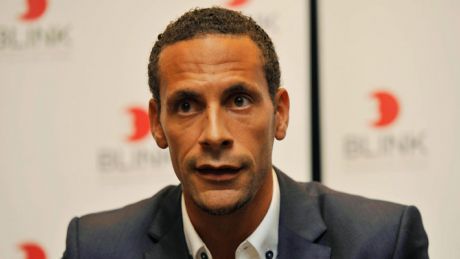
You talk in your new book about the changes David Moyes made when he arrived at Old Trafford, including his ‘no chips’ policy in the canteen...
That was just one of a few things that happened that, from my perspective, were a bit destabilising to the squad and played a factor in where we ended up that season [finishing 7th in the Premier League]. Obviously, from a Men’s Fitness perspective chips aren’t what you’d want us to be eating, but on a Friday night the players were allowed some comforts here and there, it was a bit of a ritual. I’d always have loads of carbs, pasta, grilled chicken breasts, probably a bit of red meat like steak as well, and a bit of seabass, some veg and some bread. But after that I’d have that little something special - a bit of ice cream probably. There were a few of us on our table - the senior table - that really indulged in dessert. It was usually me, [Ryan] Giggsy, Michael Carrick was ridiculous with a bit of dessert, Wayne Rooney, Jonny Evans… The table changed over the years. [Paul] Scholes was there before, Gary Neville too, Robin van Persie came towards the end. But nutrition as a whole changed a lot during my career. When I was at West Ham on a Friday before a game it would be spaghetti Bolognese all round with a fried egg and ham on top. It was very different to how it is now. It wasn’t about carbing up and getting your protein in as well.
How has the role of centre-back changed since you first started playing?
Pace is a huge factor now. When I first started playing we had Alvin Marvin at West Ham, and back in the day you had Alan Hansen, who was a great centre half, but he wasn’t that quick, and Tony Adams too. Nowadays, having pace is vital in this league, because the game has sped up so much, and it’s become much more intricate. But I think the fundamentals of playing centre-back are still very similar to when I first started. The one thing you don’t have to deal with so much now is the big number nines, the Duncan Fergusons, the Les Ferdinands, the [Pierre] van Hooijdonks. The ball used to get lumped up to these guys and you’d have to attack it and fight them all day. The rise of the false nine has meant that those individual battles have gone out the game a bit.
If you were still on the pitch with the likes of Phil Jones, Chris Smalling and Jonny Evans, what advice would you give them?
When you play at centre half, especially with a young guy, you just try to help them out by speaking to them, through example by being in the right place at the right time on the pitch and by helping them positionally. And you see that a little bit more when you’re a senior player. Chris Smalling, Phil Jones and Jonny Evans have played a lot of games over the last couple of years and I believe they’re ready to go out there and fight for the right to play at Manchester United for a long time. Unfortunately, they’ve all been injured and haven’t been able to stay in the team. But it’s a new era at Manchester United, and they’ve got this opportunity now. They’ve got the shirts and they’ve got to try and maintain some form to keep them.
What’s the key to having – or developing – a winning mentality, in football and in general life?
I think it’s just about going out to improve yourself every day. I learnt very quickly – especially when I went to Man United – that it wasn’t just something you could switch on and off. You see that with a lot of kids nowadays, where they think ‘Oh, I’ll have a couple of days where I’ll just chill in training, and not put the effort in,’ and then come the weekend, they have a bad game and they wonder why. That continues, and then all of sudden they’ve gone from being the best under-15 or under-16 player to being someone who’s out on their rear. Being at Manchester United, and seeing other players who bought into Sir Alex Ferguson’s ethos of desire, hard work, wanting to improve yourself, honing your craft and your skills, it made me want to work on my weaknesses as well as the positives things about my game. It takes lots of hard work, which sounds simple, but it’s hard to do every day.
Rio Ferdinand’s autobiography, #2SIDES, is available now from amazon.co.uk, priced £10 (RRP £20).
Get the Coach Newsletter
Sign up for workout ideas, training advice, reviews of the latest gear and more.
Sam Razvi wrote for Men’s Fitness UK (which predated and then shared a website with Coach) between 2011 and 2016.
